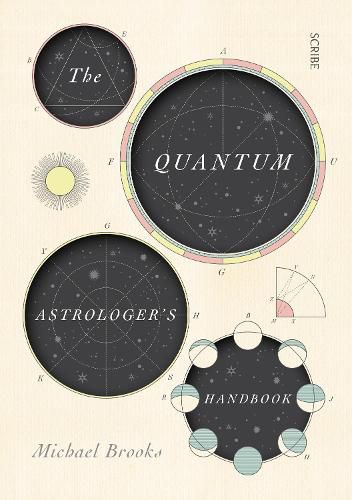Readings Newsletter
Become a Readings Member to make your shopping experience even easier.
Sign in or sign up for free!
You’re not far away from qualifying for FREE standard shipping within Australia
You’ve qualified for FREE standard shipping within Australia
The cart is loading…






This is a landmark in science writing. It resurrects from the vaults of neglect the polymath Jerome Cardano, a Milanese of the sixteenth century. Who is he? A gambler and blasphemer, inventor and chancer, plagued by demons and anxieties, astrologer to kings, emperors and popes. This stubborn and unworldly man was the son of a lawyer and a brothel keeper, but also a gifted physician and the unacknowledged discoverer of the mathematical foundations of quantum physics. That is the argument of this charming and intoxicatingly clever book, which is truly original in its style, and in the manner of the modernists embodies in its very form its theories about the world.
The Quantum Astrologer’s Handbook is a science book with the panache of a novel, for readers of Carlo Rovelli or Umberto Eco. It is a work of and about genius.
$9.00 standard shipping within Australia
FREE standard shipping within Australia for orders over $100.00
Express & International shipping calculated at checkout
This is a landmark in science writing. It resurrects from the vaults of neglect the polymath Jerome Cardano, a Milanese of the sixteenth century. Who is he? A gambler and blasphemer, inventor and chancer, plagued by demons and anxieties, astrologer to kings, emperors and popes. This stubborn and unworldly man was the son of a lawyer and a brothel keeper, but also a gifted physician and the unacknowledged discoverer of the mathematical foundations of quantum physics. That is the argument of this charming and intoxicatingly clever book, which is truly original in its style, and in the manner of the modernists embodies in its very form its theories about the world.
The Quantum Astrologer’s Handbook is a science book with the panache of a novel, for readers of Carlo Rovelli or Umberto Eco. It is a work of and about genius.
The philosopher Zeno, of Elia’s arrow paradox, is frustratingly simple. When an archer shoots an arrow we perceive it to move towards the target. But we understand that in its journey there, the arrow exists in particular points on its trajectory at different instants in time – not travelling to or from these points, but at them. If the ‘journey’ is just a series of these instants, the arrow is essentially never in motion. It’s definitely moving but undeniably frozen when we pinpoint it. Impossible!
Welcome to the confusing (and proven) reality of quantum physics. Just like Zeno’s arrow, atoms can be two ways at once: they literally behave differently when you watch them. It’s a highly contested world that scientists are only just beginning to understand. Quantum physics lab results test the limits of our language and imagination, and the field proves especially difficult for the layperson.
Enter science writer Michael Brooks, who warns us in his prologue that he may have gone mad. Brooks is convinced that Renaissance man Jerome Cordano was the first pioneer of rudimentary quantum physics. Cordano gives Schrodinger’s Cat a run for his money in the contradiction stakes. He was both an ingenious inventor of locks and a perpetual prison inmate; a fastidious scientist and a committed astrologer; the founder of probability theory and a poverty-stricken gambler. He is inconsistency incarnate, which makes him a compelling prism through which to learn about this bizarre new field.
This is probably the first time Many Worlds Theory and Machiavellian Renaissance family drama have played out side by side, but who’s complaining? Brooks’ book defies precise definition. Which, in his view, is exactly how we should all start thinking.